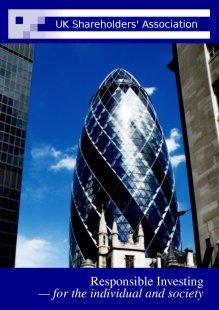UKSA and ShareSoc have submitted a joint response to the law Commission’s call for evidence on intermediated securities.
This deals primarily with securities held by an intermediary or nominee on behalf of the beneficial shareholder. The full response, submitted on 5th November 2019, can be found here.
Our response makes it clear that our preferred approach is for individual investors to hold their shares directly (i.e. in their own names) on an electronic register. This was also the solution recommended by the Kay Review of UK Equity Markets (2012). Under this proposal the intermediary (Broker / Platform / Nominee / Bank) simply becomes an agent acting on behalf of the ultimate shareholder. As the agent they would offer a range of services, as at present, which they would charge for. An outline of how this would work in practice is shown below in our answer to Question 1.
This would:
- Allow ultimate shareholders to retain full rights of share ownership (receiving communications from the company, attending AGMs / EGMs and voting unless they opt not to do so);
- Ensure that the ultimate investors were not at risk of losing money as a result of administrative failings, malfeasance or bankruptcy of nominees;
- Allow the company to identify individual members, how long they have been members and the extent of their interest in the company;
- Enable the company to communicate more effectively with its ultimate owners;
- Enable ultimate investors to communicate with company management whenever they choose in their capacity as a registered member;
- Enable ultimate investors to communicate with other shareholders in order to explain issues and other views than the Board and to requisition shareholder resolutions.
Most importantly, this would improve corporate governance. It would resolve the current highly unsatisfactory situation in which those who are legally the members of the company (the nominees) and who are supposed to be exercising governance and stewardship oversight have no financial interest of their own in the business and have inadequate incentive to exercise proper, long-term responsibility in this respect. The results are all too clear to see in the recent governance disasters (Carillion, Royal Mail, Thomas Cook, Persimmon, etc) and the egregious levels of CEO pay which, to a large extent, are now accepted as the norm. As concern mounts about climate change issues and its implications for business, it is clear that stronger stewardship is needed. Far better that this should come from shareholders with money of their own invested, rather than it be left to pressure groups and those fund managers who burnish ‘green’ credentials for marketing purposes.
This approach, in which the ultimate investor is the registered member, also meets all the needs that arise under dematerialisation – a further issue which is addressed in the Commission’s call for evidence.

